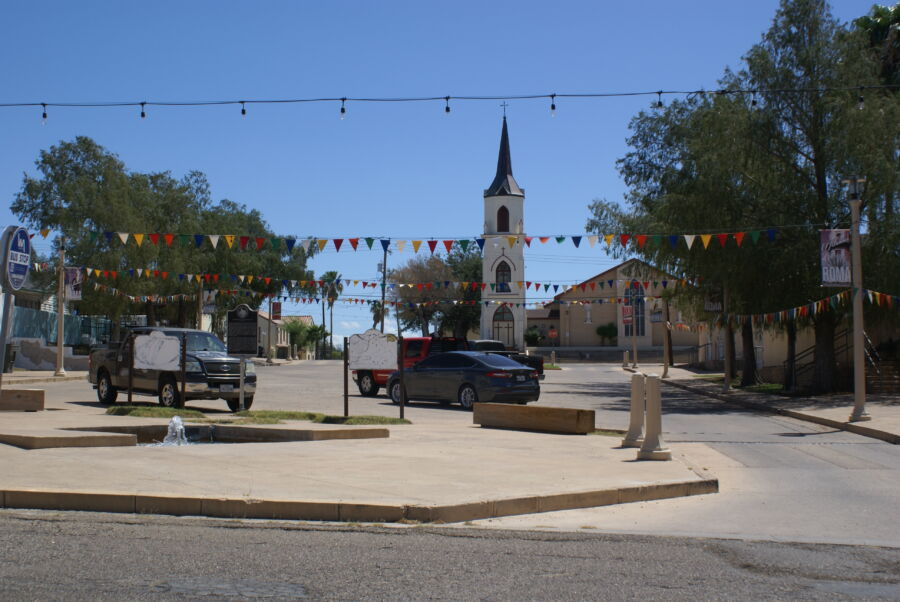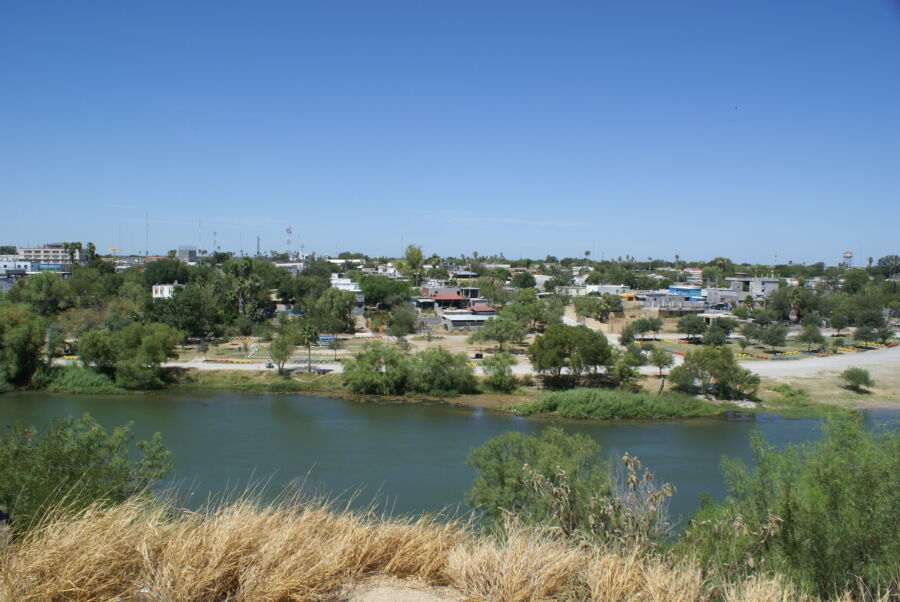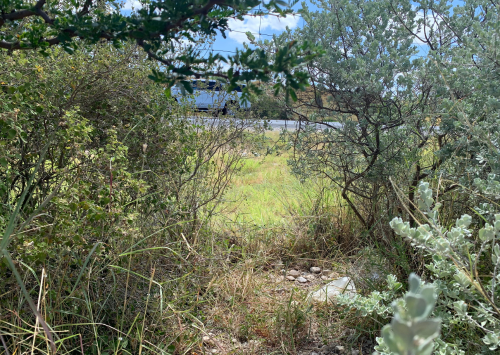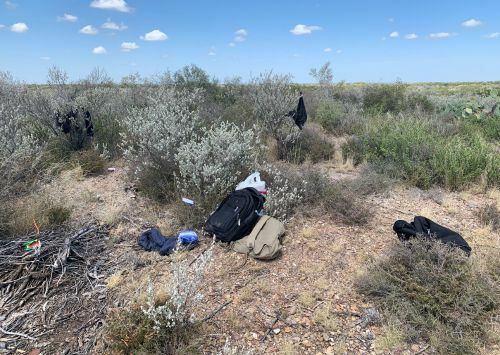The coyote—a human smuggler—armed with what appeared to be an AR-style rifle, directed migrants as they crossed the river between Piedras Negras, Mexico, and Eagle Pass, Texas. Scanning the shore and the brush beyond, he ensured his charges were across, then he slipped back into Mexico.
This is what drone footage captured on Aug. 2 revealed. Just three days later, other images were captured on camera of men, suspected cartel operatives, armed with rifles and body armors in Fronton, Texas, in the Rio Grande Valley.
Maverick County Attorney Jaime “AJ” Iracheta commented that the pictures showed “what we in law enforcement are having to deal with.”
That same week, my colleagues and I bore witness to the reality Texas border communities are facing everyday as a result of loose federal enforcement of immigration laws. This was both heartbreaking and infuriating.
Just a few days earlier, we were in nearby Roma—a lovely, historically rich, little border town. It appeared quiet when we arrived in the morning. The Roma bluffs are a well-known stop for travelers who want to gaze at Roma’s Mexican counterpart across the river—Ciudad Miguel Alemán. The Mexican town is the regular theater of cartels fighting for control of the territory. And Roma has long had to face the consequences of the absence of law and order on the Mexican side.


Later in the day, we met with landowners in the area. They feel abandoned. They’re frustrated. They’re weary. They have now told their stories to an innumerable number of people, agreed to countless photo ops with DC folks, yet no help has come from Washington. Nothing.
They are grateful for the state of Texas’ actions, but also tired of waiting for D.C. to act in any meaningful way. The diseases that the open border lets in, the fences destroyed several times a day, the cattle lost to broken fences—these are all part of their daily reality. Scarier are the times they’ve come face to face with smugglers or cartel members who’ve asked them to leave—to get out of the way, or else. On their land and on U.S. soil. Still, no help has come from Washington.
In Eagle Pass, I met with another landowner. He apologized that he was taking me on a detour on his ranch to check his fences. Any holes he finds, he has to fix quickly, lest one of his cows finds its way out. A head of cattle costs a lot, but even higher would be the cost of the cow causing an accident if it reached the road. On his land, we find leftover clothes, backpacks, empty energy drink bottles—trash.
The ranch is on the river and benefits from the security part of Operation Lone Star—the fences and personnel. The migrant encounters on the ranch have slowed down a bit recently. But before Title 42 ended, it wasn’t rare to see groups of 300 people at a time trespassing on his land.


Downtown Eagle Pass, in Shelby Park, I watched as crossings took place in plain view. Thankfully, Texas DPS, the Texas Rangers, and the Texas National Guard were all present. But here’s the catch: While our law enforcement focuses on illegal crossings of migrants, large parts of our southern border remain without barrier or human surveillance that would prevent cartel operatives and other criminals from entering the U.S. undetected. Mexican cartels know that, and purposefully send migrants to distract and overwhelm our law enforcement resources.
On top of getting no help from Washington, Texans are now told they are cruel for using the simplest way to protect themselves: a buoy barrier that both asserts territorial integrity and can prevent migrant drownings.
The truth is Washington has abandoned—and sacrificed—border communities when it stopped enforcing immigration laws. Texas has not, but Texas is also under assault by our own federal government, and by a Mexican government in cahoots with cartels, both trying to prevent Texas from doing the right thing: securing the border.
As the Maverick County Attorney stated, “There is a reason why law enforcement does what it does.” That reason is twofold: We must maintain sovereignty and protect Texan and ultimately American citizens, which is what Operation Lone Star has been trying to accomplish since 2021.
A few things have become clear to my fellow Texans on the border—and to Texans more broadly. Mexico has relinquished large parts of its sovereignty to cartels and committed the Rule of Law to suicide in the process. The current U.S. administration has abandoned border communities, and there is nothing to expect from it.
Texas stands firm and, at the border, remains the last bastion of the Rule of Law.